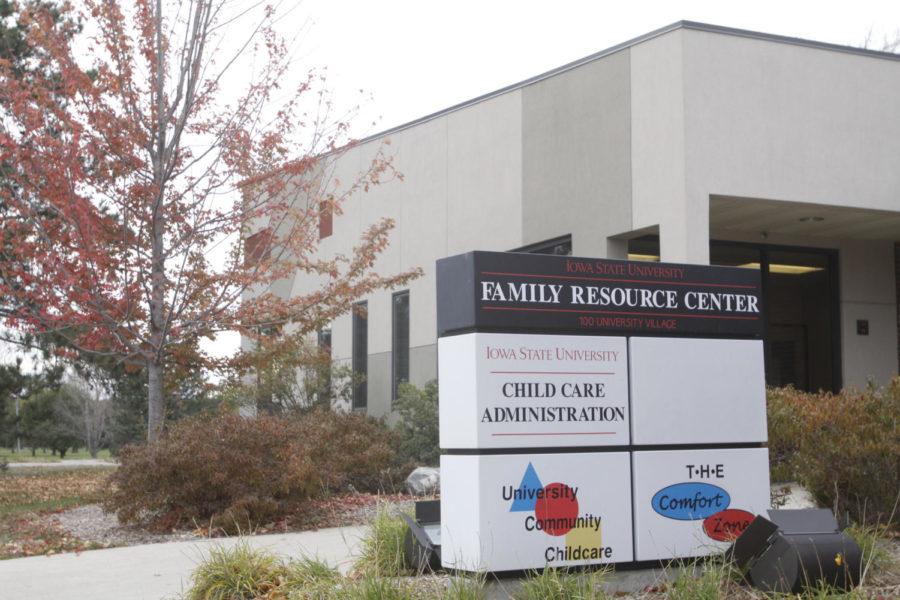Faculty Senate seeks to refine child safety policies
Photo: Tiangong Zhang/Iowa State Daily
Children on campus can be taken care of in the Child Care Center located at Schilletter/University Village. Photo taken Tuesday, Oct 9.
November 1, 2012
Iowa State holds more than labs and lecture halls. The campus is also home to many activities involving youth who are not enrolled at the university: children. The ISU Faculty Senate works hard to make sure that these children feel safe and welcome on campus.
Earlier this year, former Penn State defensive coordinator Jerry Sandusky was convicted of sexually abusing 10 boys over a 15-year period. Two school officials who stepped down were accused of perjury and failure to report suspected child abuse. This horrifying situation has sparked a number of states to mandate changes in their child abuse reporting policies, including Iowa.
“Even before the Penn State incident, we were in process of revising certain policies on campus,” said Paul Tanaka, an attorney working in the areas of university policies and procedures.
The ISU Faculty Senate is currently working on a policy that was mandated by the Iowa Legislature requiring employees to report any and all abuse of children. Current policies that Iowa State already has on the books are Reporting Responsibility and Violence-Free Campus, both stating that any knowledge of child abuse must immediately be reported to the Department of Public Safety.
“We’re just making those two policies parallel so that our employees are informed if they see something relating to child abuse, [they should] report it,” Tanaka said.
Reporting the abuse is only half the issue. The other cluster of policies relates to youth programs.
“We’re looking at setting up safety standards [such as] background screening for volunteers and recommending supervisory ratios,” Tanaka said.
Robyn Bredvick, senior in elementary education, heads the ISU chapter of Camp Adventure. Camp Adventure performs many activities across the globe. Bredvick and the organization work hard to ensure the camp attendees are kept safe while on Iowa State grounds.
“Although each site is different, we are all trained in the same way. Whenever introducing a game, we tell the rules of the game, as well as risk management. The students in our organization are very informed and trained,” Bredvick said.
Youth programs are being asked to adopt safety and first aid protocols that make sure a child receives medical attention under any kind of injury or accident.
“During training time we cover many different topics as well as train the students on our games, songs and crafts. The different presentations/trainings/certifications that we go through are aquatic safety, bloodborne pathogens, child abuse training, playground safety. We are all trained in CPR, first aid and lifeguarding,” Bredvick said.
As far as how students can help with this issue, Tanaka said to be aware about these safety issues for children on campus too.
“You do have to think about [if] maybe there are some people that are willing to use that program for their own personal reasons that are not related to the benefit of the child,” Tanaka said. “We always have to anticipate that in these days. That’s what the Penn State situation tells us. Safety has to be a much bigger commitment involved with youth-related programs.”







